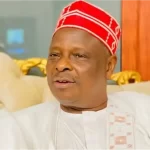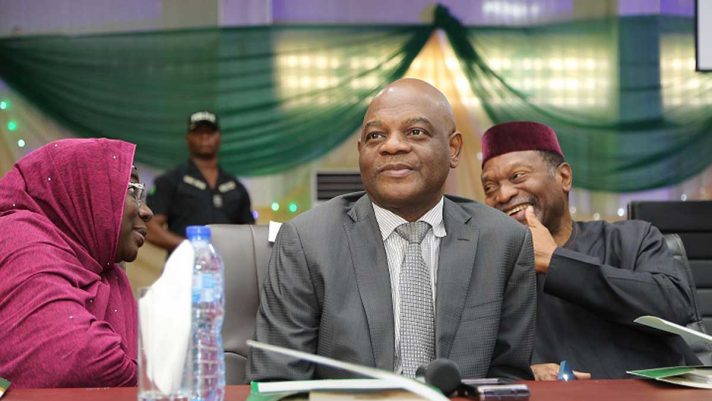Call him a restless chief executive and you are not far from the truth. Since he assumed office as the Executive Secretary, Tertiary Education Trust Fund (TETfund), Arc. Sonny Echono has not relented in an effort to improve the standard of tertiary education in the country.
Early in the week, he inaugurated a committee on digital literacy to advance the course of Information Technology (ICT) in the nation’s education sector.
The Committee which is been headed by an Emeritus Professor of National Open University of Nigeria (NOUN), Olugbemiro Jegede, has other members from the university community, representatives of National Information Technology Development Agency (NITDA), ICT consultants, TETFund directors of research as well as Academic Staff training and Development in IT.
Other members of the committee include the Vice Chancellor, Federal University of Agriculture, Zuru, Professor Musa Ahmed; Director, IT Infrastructure Solution, NITDA, Dr Usman Gambo Abdullahi and the Deputy Vice-Chancellor, IT, Research and Innovation, Baze University, Dr. Rislana Abdulazeez Kanya.
At the virtual inauguration, Echono stated that the committee became imperative given the demand for technology in today’s world, not only in tertiary education but Nigerian economy.
He said: “As you all know, digital literacy is a foundation issue of success in today’s technology driven world, regardless of educational goals, career pursuit or job functions.
“As the world and indeed Nigeria continue to grapple with the growing jobs crisis, most Nigerians across all categories of the workforce lack the basic technological skills needed for real business application.
“Therefore, proficiency in digital literacy is no longer an option; it is the prerequisite, it is the requirements. Our beneficiary institutions must play a crucial role in achieving these requirements.”
Adding: “I am also aware that various policy frameworks exist in the Ministry of Education as well as the Ministry of Communication and Digital Economy with a target to achieve 60 per cent digital literacy for youths and adults by 2025.
“Again, we also have the Nigeria National Broadband that also targets about 95 per cent digital levels to be achieved across states and local governments by 2030.”
Echono noted that TETfund has found itself in a critical role and the Fund must play its role in reaching these targets through interventions to beneficiary institutions across various states and local governments where the bulk of the youth population pass through a lot to enter the workforce.
He said: “With a view to achieving this and more, we are inaugurating this advisory committee today to show us the partway and work out the necessary steps to achieving it. I am very encouraged by the remarks of the chairman of the committee, who tells us exactly what the magnitude and complexities of the challenge before us is.
“Under the able chairmanship of Emeritus Professor Olugbemiro Jegede, with members from our universities, NITDA, ICT consultants, TETFund directors of research, Academic Staff Training and Development in IT, it is envisaged that we will receive a more holistic and comprehensive plan that will increase our efforts towards digital literacy and for the purpose of the exercise today, let me indicate the composition of this committee and the various roles members are supposed to play.
“One of the major interventions we are trying to do here is to digitalize all our academic records and repositories where you can access this and people can benefit from it.
“As part of the component, we will also develop a device that will capture our own local thesis this time because the current system we use. The thesis reproduced in this country are not in the database and it is difficult to cross-check them but now, we are going to have all our thesis digitalized.”
Echono added that digital literacy presents many opportunities through several inter-connected areas and the beneficiary institutions and Nigerian students are already engaging with digital technologies and digital media and using them to find information and to communicate meaningfully in different roles and formats.
“Consequently, the need arises to create a pool of knowledgeable and skilled manpower that will facilitate technology and skill acquisition, assimilation and future mobility and general productivity.” The ES, therefore, charged the committee to bring up a framework for amplifying towards digital literacy in the country.
Source: The Guardian








